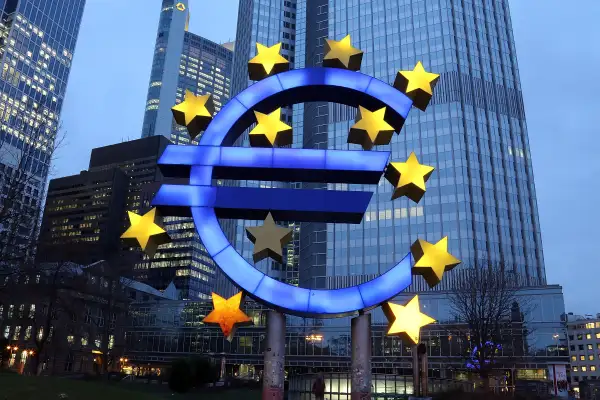Europe's Version of the Fed Announces a Big New Stimulus Plan
Money is not a client of any investment adviser featured on this page. The information provided on this page is for educational purposes only and is not intended as investment advice. Money does not offer advisory services.

On Thursday European Central Bank president Mario Draghi announced plans to implement a bond buying strategy known as quantitative easing. The ECB, which is the European equivalent of the U.S. Federal Reserve, is hoping to boost the struggling European economy. The Fed implemented a similar effort several years ago.
Under QE, the European bank will buy up tens of billions of euros worth of bonds each month. That should help keep interest rates low and help stave off a worrying trend of falling prices, or deflation.
With the U.S. economy finally humming along, you may be tempted to shrug off the news. But changes in interest rates and prices across the Atlantic quickly ripple across the globe. Here's how the move could affect you.
It may hold down interest rates and bond yields.
Ever since the Fed cut key interest rates in the wake of the U.S. financial crisis, bond yields have been unusually low. Although many forecasters expect the Fed to begin raising rates in 2015, the ECB's latest move could keep a lid on how far yields on Treasuries rise.
European bonds already yield considerably less than Treasuries—German government bonds maturing in 10 years pay 0.4%, compared to about 1.9% for Treasuries. If QE continues to depress European yields, more and more buyers are likely to seek out Treasuries, pushing Treasury prices upwards. Bond yields fall when prices rise.
Continued low rates would be good news for borrowers but a mixed bag for investors. Although bonds would lose value when rates begin to rise, many income oriented investors and saver have been frustrated by low payouts, forcing them to hunt for riskier alternatives.
It could further strengthen the dollar.
By buying up bonds, the ECB is essentially creating more euros. On Thursday, the value of the euro fell to $1.16, according to Blommberg. That's its lowest level in more than a decade. In the long run that should help European companies by making it cheaper for U.S. consumers to buy their goods. But if you own foreign stocks, you're likely to feel some pain, at least in the short run.
The European stocks you own are denominated in euros, but the value of your account is denominated in dollars. As the dollar rises, a European stock simply isn't worth as many dollars as it was before, assuming its price in euros didn't change. The good news is, you don't need to worry unless you plan to sell right away. In the long run, such currency fluctuations should even out.
The U.S. stock market is happy—for now.
The Dow climbed about 117 points, or 0.7%, to 17,671 in morning trading. While it's always tricky to interpret stock market ups and downs, it seems likely investors are applauding the ECB's aggressive action to prevent a deep recession, just as they did over the past several years when the Federal Reserve made similar moves. With the U.S. economy finally humming, the Fed's strategy seems to have worked. Ultimately the best thing for stock values is to get Europe, a major driver of global growth, back on the same path.
